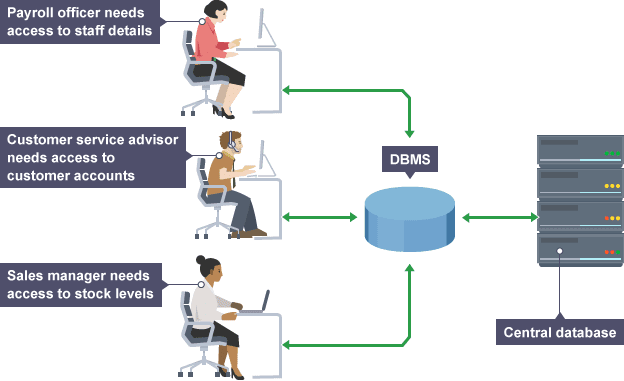What is a Database management system? What are its advantage over traditional means of data handling?
Security, Reliability, Availability, Easy access, let’s check into it in detail.
India is one of the most populated countries in the world. There must be huge invisible data for a large population. Though handling such information could be a cumbersome task. Have you ever wondered about how does a system run? Whether it be of any form like a government management system, banking system, hospital management system. The system mainly relies on data and it’s an outcome of processed data. There was no structural format for assembling data. And there was no painless way to get into it and retrieve information. Soon file System manages to start providing a solution on time. Proper planning for maintenance and accumulation of several types of data becomes a nice job.
And as time moves on and along with the advent of the computer the traditional process starts occurring virtually for easy access. What was taking a large space can now proceed in a single PC or Laptop. The computer starts maintaining a file system. All inter-related information save in one file and with a name that can be more suitable. Computer Software helps to processed computer systems, programs, and data. Around fifty-three years ago a small team by Charles W. Bachman was working to automate the business processes of the General Electric Company built the first database management system. Several action features like Create, Alter, Delete, Update proves to be helpful in an automated system of current days.
The database is a collection of inter-related data that helps in efficient retrieval, insertion, and deletion of data and organizes the data in the form of tables, views, schemas, reports, etc. To manage the database a database management system like Oracle, MySQL, etc is used. Such a system makes managing information very much easy without any headache.
People had found many benefits of using DBMS over a typical File System. The comparison is shown in the DBMS and File System based on relevant criteria in a simple way.
- Redundancy of data: Data is redundant if it is available at various locations in a system. But in the traditional file system data is commonly copied to many places. And for making any alteration in such a system we need to update it at every location if it is present. In a Database Management System, redundancy is relatively less as it helps to maintain all the relative information in a single place. DBMS keeps the data ina centralized way which reduces the chances of redundancy. Moreover, a feature of the primary key and foreign key also helps to uniquely identify single information.
- Data Access: While accessing data in the File System you need to consider the location of data. However, in a Database Management System, you only need to know the name of the file to grab it from the system.
- Data Security: Security can play an important role if your data is more sensitive to access. If a student found his exam track record he might change it for his own benefit so confidentiality of the data can turn into a threatening situation. Data security can give you a sense of the stress-free condition of its alteration by a stranger. DBMS provides security by providing a benefit of data encryption that could make it safer. And a File System may lead to unauthorized access to the data.
- Data Backup and Recovery: If a file is lost or corrupted the file system does not incorporate any backup and recovery of data. On the other side, a DBMS helps in data recovery and backing up of data. There are some methods like full backup, the Transaction log and differential log for backing-up our data, and a few more for recovering it. Get detailed information here.
So those were selective the key advantages of the database system. Data is one of the main resources for software analytics and manipulations.
In conclusion, it will be helpful and convenient if we approach the most suitable system for handling huge data in day to day strategy of IT Operations as it can help you make qualitative decisions on time.

